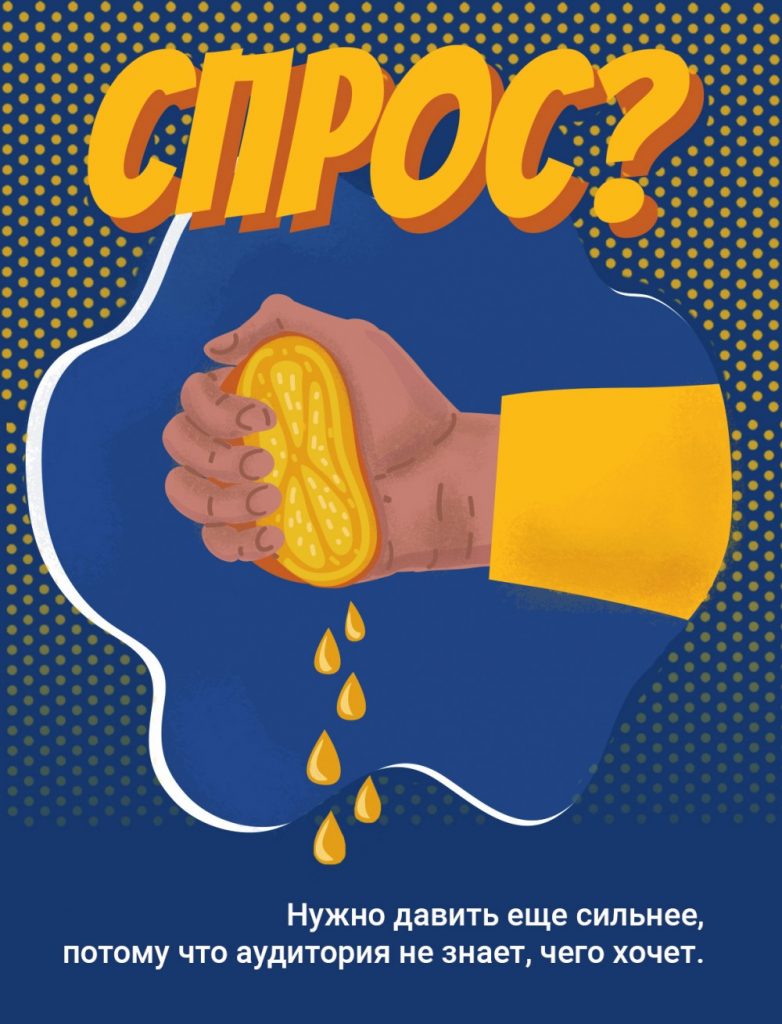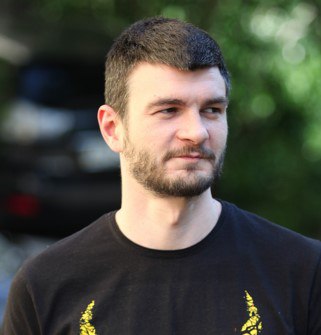No Time to Die: A Tough FAQ for Marketers Desperate for the Crisis
April 2020. Norms of decency require that Ukrainian marketers should stay at home and complain about the crisis. Yevhenii Myroniuk and Andriy Franchuk from Brain Tank are indecent, they have a lot of work and a lot of evil words for those who consider the crisis a reason to go to the bottom.
What is the difference between the current and past collapses?
We used to deal with the redistribution of funds. In 2008, the collapse of the banking bubble created a temporary feeling of money lack, but the mass quickly increased due to other economic sectors. In 2014, money flowed from full pockets into empty ones. Now there is no redistribution, there is grounding. Everyone’s money naturally ends because they stopped to start.

Can’t you just quietly sit out a difficult time?
The idea to hide in a mink and to let things happen is the most dangerous one. Pulling a person out of the economy leads to a distortion and the emergence of an internal market problem. You start saving — you leave less in the store — the sausage maker gets less — and pays less to his sausage master — so he quits and goes to work as a security guard.
What consequences can all this have for business?
I earn less — I buy less in the store — the manufacturer sees that I buy less — the manufacturer reduces supplies — the manufacturer loses profit — the manufacturer goes bankrupt. Ukrainian business is not funded, it only generates cash flow. Stopping parishes leads to the collapse of the marketing system and entire industries.
Are marketers guilty?
The profession obliges us to confront chaos, cultivate clarity of consciousness, and clarity of action. We analyze the situation, predict the consequences, minimize damage, maximize profits. What is not clear? However, it’s the marketers who are currently generating headings like “Quarantine as natural selection for business,” “Starting from the worst scenario,” or “Not a single buckwheat during the quarantine”. This is a panic! If contrary to circumstances, we continue to do what we can, the system works, despite some failures.

How can marketers keep working in a crisis?
A crisis is a happy period of time when a marketer cannot be unemployed. All his life he learned to shape reality for marketing in the conditions of such supply and demand — and finally came in handy.
For example, we are really busy with work, since we invent it ourselves. We call customers and say: "Dudes, we know how to make things work". They now respond very quickly, almost instantly: "Do it". We are trying to help every business we can reach.
How to stimulate demand?
Henry Ford, the inventor of modern car manufacturing, said that if he asked people what they needed, they would ask for a faster horse. This is where your efforts should be directed. You can not turn off the pressure, because the product is not asked right now. On the contrary, you need to push even harder because the audience does not know what they want.
So, for one development project, we launched both remote sales offices, and consultations with virtual glasses, and other tools adapted to the current life.

How branding is changing?
In any market, consumers are attentive to the unique properties of the product, they are looking for differences within product groups. But today, the air is full of other topics: we all will die, how to be saved if there is enough money for personal ventilation. This agenda distracts people from scrutinizing the assortment.
Whereas before a brand consisted of differences between a product and other products, today it consists of differences between a product and coronavirus.
Why try if everyone runs out of money soon?
Many customers in the FMCG segment were frightened, sat on the #ss, stopped any goods support, reducing sales, and because of this, they stopped seeing demand at all. This is a problem. However, a marketer's job is to bring the right information and vectors for goal setting for decision-makers. Each of us today should begin to build a chain with a perspective for 2-3 months. Yes, during that period, everyone around us — consumers, manufacturers, suppliers — will have problems with money.
Aren't you scared at all?
We are afraid but in a different way. Our colleagues — on the client's side too — do not offer bold solutions because they fear to lose their jobs. And we are afraid that this will not allow them to gain experience. They will not come out of the crisis by specialists with a wealth of techniques worked out in a difficult situation. We are afraid that this time will not be remembered in the minds of marketers by anything but fear of acting. The money will then return again, but the eggs will not grow.

Niya Nikel and Ivan Siyak especially for Delo.ua
The full text (in Russian) is here.














